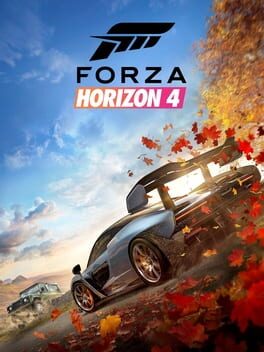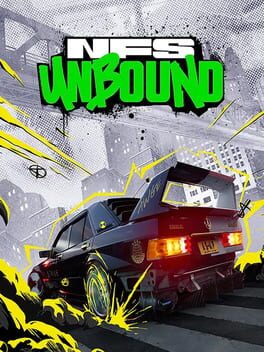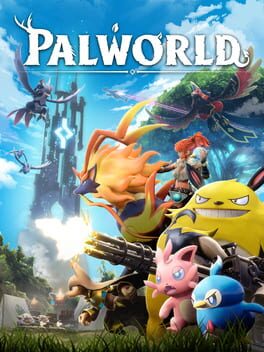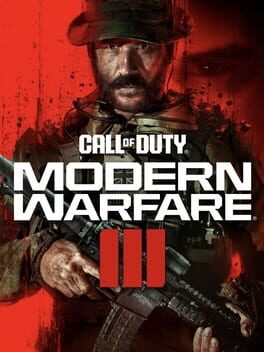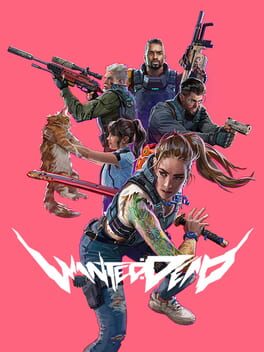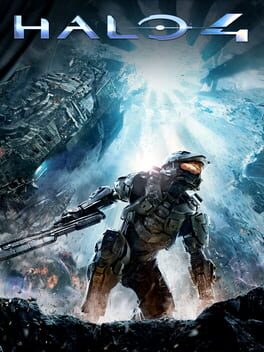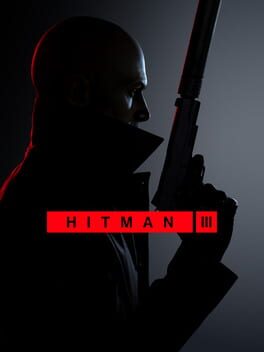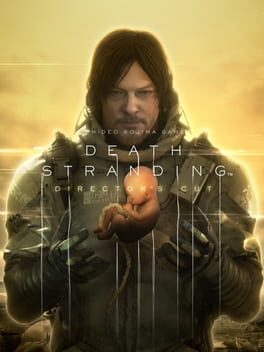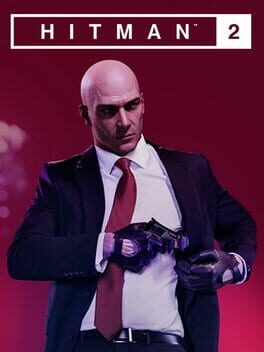zachmaycry
90 Reviews liked by zachmaycry
Forza Horizon 4
2018
It's tough for me to rate these games. When I play one, I play a LOT of it, and I have a good time, but they always leave me feeling empty. I hate the grind and the feeling of never being able to see all the content -- it's the completionist in me. And on top of that there's the absolutely insulting amount of advertising for DLC barfed all over every screen and every menu. It's borderline parody and actively turns me off to the whole thing.
Looks great, driving's great, but the vibe is phony and I truly hate the obtrusive attempts at game-as-a-service shit. I don't want to play this for 1000 hours to unlock everything (if that's even possible).
Looks great, driving's great, but the vibe is phony and I truly hate the obtrusive attempts at game-as-a-service shit. I don't want to play this for 1000 hours to unlock everything (if that's even possible).
Bits and pieces of this are pretty interesting, and I'm happy to see (between this and Heat) those running the NFS series identify the open space for a racing game that leans hard into the spectacle of street racing. Heat felt like EA (and Ghost Games) dipping their toes in the water, and this feels more like jumping right in - a greater commitment to a street art aesthetic, streetwear, music (didn't really expect to hear clipping. on a Need for Speed soundtrack), the whole nine. Does it work? Kinda.
It's definitely the closest thing to NFS Underground that has existed since the release of those games, and I do genuinely believe that the cel-shaded style of the people (and some mid-race effects) works really well to give the game some character. There's still a feeling of sanding off the rough edges that might scare off the suits, but overall it feels like the developers have tried to make something that they think is cool, and they are a lot closer to the mark than most AAA games get. I do wish they cut back on the talking - especially notable is the fact that the game alludes to municipal politics WAY more than you'd expect from a game that is trying to be trendy, but if it surprises you that "the mayor fucking HATES racing" is a plot point in a Need for Speed game, then I'm not really sure what to tell you.
I don't really want to hype this up too much - your car typically feels like the tires are made of either ice or glue, the game itself often looks fuzzy due to the way effects/filters are used, and even gentle curves often require that you hit the brakes pretty hard - but the core is pretty interesting and I'd really like to see them try to build on what's here for future games. Right now the game simply cares too much to be truly cool, but they're on the right track for giving modern NFS an identity separate from other big-name racing series. I still kinda hate the way cars handle in the newer NFS iterations, but I'm seeing a lot of people offering praise for that specific element of the NFS Unbound experience, so maybe in a few years we'll see this franchise (re-)develop an even larger, dedicated audience of people who are less interested in sleek, unmodified hypercars and more interested in turning the car itself into a form of expression all its own.
It's definitely the closest thing to NFS Underground that has existed since the release of those games, and I do genuinely believe that the cel-shaded style of the people (and some mid-race effects) works really well to give the game some character. There's still a feeling of sanding off the rough edges that might scare off the suits, but overall it feels like the developers have tried to make something that they think is cool, and they are a lot closer to the mark than most AAA games get. I do wish they cut back on the talking - especially notable is the fact that the game alludes to municipal politics WAY more than you'd expect from a game that is trying to be trendy, but if it surprises you that "the mayor fucking HATES racing" is a plot point in a Need for Speed game, then I'm not really sure what to tell you.
I don't really want to hype this up too much - your car typically feels like the tires are made of either ice or glue, the game itself often looks fuzzy due to the way effects/filters are used, and even gentle curves often require that you hit the brakes pretty hard - but the core is pretty interesting and I'd really like to see them try to build on what's here for future games. Right now the game simply cares too much to be truly cool, but they're on the right track for giving modern NFS an identity separate from other big-name racing series. I still kinda hate the way cars handle in the newer NFS iterations, but I'm seeing a lot of people offering praise for that specific element of the NFS Unbound experience, so maybe in a few years we'll see this franchise (re-)develop an even larger, dedicated audience of people who are less interested in sleek, unmodified hypercars and more interested in turning the car itself into a form of expression all its own.
Palworld
2024
Palworld
2024
A half decent pit of ideas blatantly stolen from other games cobbled together into a survival game based mess. Coming from a developer who is openly and aggressively into making AI the future of everything, jerking themselves off while doing so. Nothing about this game is original, even down to the shitty clashing artstyles evoking a kind of "Nintendo Hire This Man" aura. There's no life, no charm, and god forbid any sort of reason to pick this game up.
If you get it, you're better off getting other games. If you want to spite Nintendo, congrats you're not buying their games anyway so why bother buying this one instead? If you're staying away because you were educated on what the fuck is going on behind the scenes? Good, stay away.
There's nothing good or interesting about this game and it should be treated as it truly is: A soulless cash grab made by a handful of AI bros. If the trailer wasn't widely circulated, nobody would buy it and nobody would give a shit about it. Good timing for bad circumstances.
If you get it, you're better off getting other games. If you want to spite Nintendo, congrats you're not buying their games anyway so why bother buying this one instead? If you're staying away because you were educated on what the fuck is going on behind the scenes? Good, stay away.
There's nothing good or interesting about this game and it should be treated as it truly is: A soulless cash grab made by a handful of AI bros. If the trailer wasn't widely circulated, nobody would buy it and nobody would give a shit about it. Good timing for bad circumstances.
Y̵a̵k̵u̵z̵a̵ Like A Dragon Mission: “ K̵i̵r̵y̵u̵ Joryu, we need you to save the cancer-riddled children of Sunflower Orphange from the Big Baby Breakdancing Gang! I’ll give you 5,000 Bronze Dragon Points if you can finish them off with this flaming dildo shaped like a copyrighted anime character and livestream it all on Snitch.tv!”
Y̵a̵k̵u̵z̵a̵ Like A Dragon Cutscene: “I’ve survived past the point of death so many times, often in the place of others who meant so much more to me than I could have known in the moment. Only now, as I face my own end, do I understand the true pain of feelings left unsaid. I tried to live without regrets, but the consequences of a life left living are inevitable.”
------------------------
Long - though comparatively short by franchise standards - periods of drama wholly contingent on the viewer's pre-existing knowledge of plot and history from Yakuza 0, Yakuza, Yakuza 2, Yakuza 3, Yakuza 4, Yakuza 5, Yakuza 6, Judgment and Yakuza: Like A Dragon exist in tandem with tutorials for complex game systems like "using the map" and "doing a kick", highlighting the epic contradictions this saga repeatedly unfolds and upholds upon itself. If you're an insane member of this subcultural phenomenon and have played through all ten games in the series, there is no spiritual need for anything beyond Kiryu's story, but ultimately all the Level-Up Daily Login Bonuses are in service of this game's overarching theme of going through the duties while you watch the exterior world move further away from you and begin to accept life in the interior world built for you by the actions of your past. Either you're new to this and woefully out of your depth (don't worry, Joryu will help you), or you've always known the man who erased his name and are now compelled by brotherly honour to remain with him until the end.
Y̵a̵k̵u̵z̵a̵ Like A Dragon Cutscene: “I’ve survived past the point of death so many times, often in the place of others who meant so much more to me than I could have known in the moment. Only now, as I face my own end, do I understand the true pain of feelings left unsaid. I tried to live without regrets, but the consequences of a life left living are inevitable.”
------------------------
Long - though comparatively short by franchise standards - periods of drama wholly contingent on the viewer's pre-existing knowledge of plot and history from Yakuza 0, Yakuza, Yakuza 2, Yakuza 3, Yakuza 4, Yakuza 5, Yakuza 6, Judgment and Yakuza: Like A Dragon exist in tandem with tutorials for complex game systems like "using the map" and "doing a kick", highlighting the epic contradictions this saga repeatedly unfolds and upholds upon itself. If you're an insane member of this subcultural phenomenon and have played through all ten games in the series, there is no spiritual need for anything beyond Kiryu's story, but ultimately all the Level-Up Daily Login Bonuses are in service of this game's overarching theme of going through the duties while you watch the exterior world move further away from you and begin to accept life in the interior world built for you by the actions of your past. Either you're new to this and woefully out of your depth (don't worry, Joryu will help you), or you've always known the man who erased his name and are now compelled by brotherly honour to remain with him until the end.
This is exceptionally lazy even by Cod standards, it makes absolutely no sense that Cod still does the whole yearly release thing, now that they are literally bringing in all the weapons from the last game into this one.
Campaign: I liked MW 2019's campaign quite a bit, for the same reasons many hated it. I thought it was fascinating to see a story with such a warped moral compass, where any action taken by western militaries is justified, and the main thing causing terrorism is too many rules and regulations placed on the police (not that I agree with this, I just found it very engaging and entertaining). On top of that it had very slick audio and visual presentation and some great set pieces. MW3 2023 however has the worst story of any Cod campain by a long shot. There is absolutely nothing memorable in terms of story. It's completely bland and feels like it was written in about 10 minutes. I liked the open ended gameplay a little, but thats not what I want in a Cod campaign, I want crazy action with memorable characters and a fun well paced story. This has none of that whatsoever.
Multiplayer: It plays identically to last years modern warfare, and all the maps are from old games, there's really nothing new on offer here. It still bothers me that they don't use real names and designs for all the guns anymore, I think a big appeal of Cod is the jerking off of military technology, which is cheapened when you're shooting supermarket own brand AK-47s instead of the real thing.
Zombies: I only buy these stupid games every year becuase It remains the only series that I can consistantly get a group of friends to buy and play, only some of which are even that interested in gaming. And the zombies mode was one of the best modes to play with buddies, but much like that last few zombies modes, this is complete shit. Again, it's as low effort as physically possible, no characters, no unique map, it's not round based. Please Activision, just make a zombies only game with all the old maps, that shit would sell like crazy.
This is the first Cod game I've bought while being in full-time employment and just playing it for a couple hours feels like such a waste of time. I could literally be doing anything else, and I'm sitting here, shooting the same guns in the same places at the same people I was ten fucking years ago. I don't even hate this game, the gameplay still slaps (It's literally designed in a lab to be as addicting as possible so not really that suprising). It just brings nothing new to the table.
Campaign: I liked MW 2019's campaign quite a bit, for the same reasons many hated it. I thought it was fascinating to see a story with such a warped moral compass, where any action taken by western militaries is justified, and the main thing causing terrorism is too many rules and regulations placed on the police (not that I agree with this, I just found it very engaging and entertaining). On top of that it had very slick audio and visual presentation and some great set pieces. MW3 2023 however has the worst story of any Cod campain by a long shot. There is absolutely nothing memorable in terms of story. It's completely bland and feels like it was written in about 10 minutes. I liked the open ended gameplay a little, but thats not what I want in a Cod campaign, I want crazy action with memorable characters and a fun well paced story. This has none of that whatsoever.
Multiplayer: It plays identically to last years modern warfare, and all the maps are from old games, there's really nothing new on offer here. It still bothers me that they don't use real names and designs for all the guns anymore, I think a big appeal of Cod is the jerking off of military technology, which is cheapened when you're shooting supermarket own brand AK-47s instead of the real thing.
Zombies: I only buy these stupid games every year becuase It remains the only series that I can consistantly get a group of friends to buy and play, only some of which are even that interested in gaming. And the zombies mode was one of the best modes to play with buddies, but much like that last few zombies modes, this is complete shit. Again, it's as low effort as physically possible, no characters, no unique map, it's not round based. Please Activision, just make a zombies only game with all the old maps, that shit would sell like crazy.
This is the first Cod game I've bought while being in full-time employment and just playing it for a couple hours feels like such a waste of time. I could literally be doing anything else, and I'm sitting here, shooting the same guns in the same places at the same people I was ten fucking years ago. I don't even hate this game, the gameplay still slaps (It's literally designed in a lab to be as addicting as possible so not really that suprising). It just brings nothing new to the table.
Wanted: Dead
2023
Halo 4
2012
Baldur's Gate 3
2020
Not particularly enamored with this one although I can certainly understand why many are, since it allows for those kinds of conversations that frequently feel impossible in 2023, the kind where you and your friends or coworkers come together to talk for hours about the choices you made at a particular juncture and what happens if you pick option C instead of option B, you know what I mean - conversations that are much rarer when a modern game's sense of mystery can be completely dispelled within 10 hours by front page reddit posts and scores of "articles" reducing each dialogue prompt to Baldur's Gate 3: How To Get THE BEST Companion Cutscenes. The #general chat in my Discord server has people I haven't spoken to in years coming out of the woodwork to talk about the results of character creation, about the companions they've romanced and killed, about all the ways their characters lost an eye, and they all seem pretty content with the breadth of discoveries that this game enables.
For my first 20 hours, I was basically the same - there's a lot of fun to be had in poking around these early areas with the horniest party of all time (despite that fact) and chatting with rats, cats, and dead guys. In these early chapters the game best supports my preferred playstyle: a big circuitous route around the map, looking at everything as I drive past but only stopping to drink deeply from a select few side stories. Push further into the main story, though, and find yourself woefully underleveled because you grew tired of these fights 10 hours ago. It's never so difficult as to completely block you from progressing, but it's easy to feel that your punishment for not seeking out each and every side quest is being forced to initiate every fight from the (admittedly cumbersome) stealth or spend the whole fight herding enemies into a big circle so you can use your Level 3 AOE Spell of choice to meme the encounters until they're finished. I have no experience with D&D or this particular ruleset aside from other video games, but the adherence to such a system and its limits are obvious when you spend forty hours playing this game just to unlock a single cast of a spell that these developers would've given you immediately in their last game. It's a pace that works pretty well for weekly tabletop adventures with a group of IRL friends, but feels a bit too slow and unrewarding when I'm sitting alone, staring at a menu of unappetizing "roll advantage"/"create difficult terrain" spells as a reward for my once-nightly level-up.
What's kept me playing are the settings and companions - the mind flayers are arguably the least interesting part of this whole deal, so while it sucks that the main plot so prominently revolves around them, the side quests are generally well-crafted enough that one or two of them would be a satisfying enough adventure to fill the entire night on their own. I do wish that the companions would Talk Normally for five minutes but they've done well enough in telling some of the companion stories (Gale is a particular standout) that they can create genuinely affecting moments if you look in the right places. Not all of them are told so well, and some of the companions feel deeply artificial as a result, but generally speaking I can understand why a player might recruit any given companion not named Lae'zel to their party. For the most part, I'm also fond of the party chatter - every once in a while you'll get a nice bit of banter that feels like the result of actual role-playing with friends, whether it's a joke or a short flavorful exchange revealing how two companions interact or a story that fleshes out someone's background. It's not as personal as it could be if it were your real friends bantering with you, but it's a fun approximation and it's deployed tastefully.
Ultimately my grade for the experience is a big ol' shrug and the word "Sure?" written exactly like so. I think the lipstick looks fantastic even if it fails to produce miracles for the pig that is 5th edition rules, with its awkward magic system and glacial level progression and a litany of boring buffs. Compared to the average person I'd be considered a "hater" of Divinity Original Sin 2 but it felt so colorful compared to this! I love killing bosses by shoving them into a pit as much as the next guy, but much of this experience feels like the developers are skillfully wringing every drop of charisma that they can from the source material and hoping that the player doesn't notice that "the chill druid left and now the mean druid is being mean, go fetch the chill druid" feels a little trite. I'll be doing my best to hit the end credits, but if I don't make it, know that I'm probably out there starting a new save on Tyranny instead.
For my first 20 hours, I was basically the same - there's a lot of fun to be had in poking around these early areas with the horniest party of all time (despite that fact) and chatting with rats, cats, and dead guys. In these early chapters the game best supports my preferred playstyle: a big circuitous route around the map, looking at everything as I drive past but only stopping to drink deeply from a select few side stories. Push further into the main story, though, and find yourself woefully underleveled because you grew tired of these fights 10 hours ago. It's never so difficult as to completely block you from progressing, but it's easy to feel that your punishment for not seeking out each and every side quest is being forced to initiate every fight from the (admittedly cumbersome) stealth or spend the whole fight herding enemies into a big circle so you can use your Level 3 AOE Spell of choice to meme the encounters until they're finished. I have no experience with D&D or this particular ruleset aside from other video games, but the adherence to such a system and its limits are obvious when you spend forty hours playing this game just to unlock a single cast of a spell that these developers would've given you immediately in their last game. It's a pace that works pretty well for weekly tabletop adventures with a group of IRL friends, but feels a bit too slow and unrewarding when I'm sitting alone, staring at a menu of unappetizing "roll advantage"/"create difficult terrain" spells as a reward for my once-nightly level-up.
What's kept me playing are the settings and companions - the mind flayers are arguably the least interesting part of this whole deal, so while it sucks that the main plot so prominently revolves around them, the side quests are generally well-crafted enough that one or two of them would be a satisfying enough adventure to fill the entire night on their own. I do wish that the companions would Talk Normally for five minutes but they've done well enough in telling some of the companion stories (Gale is a particular standout) that they can create genuinely affecting moments if you look in the right places. Not all of them are told so well, and some of the companions feel deeply artificial as a result, but generally speaking I can understand why a player might recruit any given companion not named Lae'zel to their party. For the most part, I'm also fond of the party chatter - every once in a while you'll get a nice bit of banter that feels like the result of actual role-playing with friends, whether it's a joke or a short flavorful exchange revealing how two companions interact or a story that fleshes out someone's background. It's not as personal as it could be if it were your real friends bantering with you, but it's a fun approximation and it's deployed tastefully.
Ultimately my grade for the experience is a big ol' shrug and the word "Sure?" written exactly like so. I think the lipstick looks fantastic even if it fails to produce miracles for the pig that is 5th edition rules, with its awkward magic system and glacial level progression and a litany of boring buffs. Compared to the average person I'd be considered a "hater" of Divinity Original Sin 2 but it felt so colorful compared to this! I love killing bosses by shoving them into a pit as much as the next guy, but much of this experience feels like the developers are skillfully wringing every drop of charisma that they can from the source material and hoping that the player doesn't notice that "the chill druid left and now the mean druid is being mean, go fetch the chill druid" feels a little trite. I'll be doing my best to hit the end credits, but if I don't make it, know that I'm probably out there starting a new save on Tyranny instead.
Hitman 3
2021
The third entry in what would become known as the "World of Assassination trilogy" certainly has the absolute strongest levels in the series. Dartmoor and Berlin present compelling twists on the core formula that expand upon the core of what makes it compelling: it presents levels as living worlds, intricate clockwork dollhouses that the player can poke to see what happens. Dubai and Ambrose Island are excellent bread-and-butter Hitman levels, which is crucial for making the game feel whole. And Chongqing stands out as having possibly the best background character writing in a series which is known for excellent background character writing.
(Mendoza is mostly there, but suffers from a few odd mismatches between how it signals the player to play and the modes of play it actually offers. It's certainly fun for the most part, but feels decidedly less baked than the rest of the game.)
The only serious drag on this game is its increased interest in linearity in service of plot. Although I think the plot itself is well-done, the way it intersects with the game itself—the escape sequence the first time you play Chongqing and the whole of Carpathian Mountains—doesn't play to the series's strengths. Hitman is intrinsically a non-linear experience that excels at creating a holistic view of a story through glimpses of small moments and conversations. Trying to force that into straightforward "move through these zones and solve these puzzles" mechanics weakens the storytelling and leads to uninteresting zones. But fortunately, that's a small part of this otherwise excellent capstone to one of my favorite series.
(Mendoza is mostly there, but suffers from a few odd mismatches between how it signals the player to play and the modes of play it actually offers. It's certainly fun for the most part, but feels decidedly less baked than the rest of the game.)
The only serious drag on this game is its increased interest in linearity in service of plot. Although I think the plot itself is well-done, the way it intersects with the game itself—the escape sequence the first time you play Chongqing and the whole of Carpathian Mountains—doesn't play to the series's strengths. Hitman is intrinsically a non-linear experience that excels at creating a holistic view of a story through glimpses of small moments and conversations. Trying to force that into straightforward "move through these zones and solve these puzzles" mechanics weakens the storytelling and leads to uninteresting zones. But fortunately, that's a small part of this otherwise excellent capstone to one of my favorite series.
Pentiment
2022
There is a pattern with very few exceptions in the way I experience modular narrative games. The beginning of the game lays out a structure—the game's mechanical thesis—and I begin to understand ways in which that structure can be used to tell brilliant intertwining stories in ways that haven't been possible before. And then, inevitably, as I begin to approach the end of the game, I realize that it will not live up to the promise of its own structures, and however beautifully it weaves its story it will live in the shadow of what could have been.
Pentiment's story is doubtlessly beautiful. It takes a small town in an unglamorized time in history and tells a gripping tale that combines religion, politics, and humanity together as deftly (and with as much research) as any lauded novel of historical fiction. The comparison to Middlemarch is perhaps obvious, but well-earned. And it gives the player ample opportunity to influence characterization without making the protagonist a cipher with no personality of his own.
In the beginning, Pentiment tries to give the player a similar level of control of the narrative with a brilliant structure in which the player is presented with a buffet of choices of what to investigate and who to dine with, but with only a few days to allocate between them so that many paths remain unexplored. Allowing a single playthrough to miss major chunks of content is absolutely necessary for a narrative game to truly be modular, and this structure facilitates that while also presenting the player with a meta-puzzle across multiple playthroughs: learn what each of these events gets you, what information you get or friendships you make, and what is duplicated across different events. Combine this with the player's chosen traits and dialog options opening or closing different paths, and then hide the heart of the game within this web so that only by deeply understanding the town outside the minds of the protagonist—by becoming in a way its protector-saint—can you truly understand its secrets and navigate its innermost channels.
Despite creating a structure in which this is possible, a genuinely inspired combination of Inkle games and dating sims, Pentiment instead lets this structure fall by the wayside to the extent that the last third of the game is almost completely on rails—the player can and probably will see everything the game has to offer at that point, no matter what. Although the narrative is still marvelous it's no longer modular, and it only functions as a game within the scope of a few conversations and the player's trudging between screens.
And, oh, what trudging it is. Although I mourn for its unfulfilled potential and there are increasingly many glitchy moments or unedited lines as the game goes on (the result of a rushed end of production?), the truest deepest flaw of Pentiment is surely the amount of time a dedicated player will simply spend moving from screen to screen. In every hour any part of the map could have a new event or new dialog—but almost none actually do. There are just precisely enough that the player is motivated to check everywhere over and over again, wasting cumulative hours of real human time.
But if Pentiment's mechanics are a little underconsidered and their quality occasionally slapdash, it's still a miracle that it exists at all. I never thought I'd see a AAA studio, a Microsoft subsidiary no less, make something like this that is so openly in conversation with this genre which has for decades been exclusively the territory of indie games (and indeed was rarely a big name there either). I dearly hope that this helps legitimize that space and expands both its popularity and marketability, and I dream as I always have of the day when someone makes a game that truly grasps the potential towards which games like Pentiment extend their hands.
Pentiment's story is doubtlessly beautiful. It takes a small town in an unglamorized time in history and tells a gripping tale that combines religion, politics, and humanity together as deftly (and with as much research) as any lauded novel of historical fiction. The comparison to Middlemarch is perhaps obvious, but well-earned. And it gives the player ample opportunity to influence characterization without making the protagonist a cipher with no personality of his own.
In the beginning, Pentiment tries to give the player a similar level of control of the narrative with a brilliant structure in which the player is presented with a buffet of choices of what to investigate and who to dine with, but with only a few days to allocate between them so that many paths remain unexplored. Allowing a single playthrough to miss major chunks of content is absolutely necessary for a narrative game to truly be modular, and this structure facilitates that while also presenting the player with a meta-puzzle across multiple playthroughs: learn what each of these events gets you, what information you get or friendships you make, and what is duplicated across different events. Combine this with the player's chosen traits and dialog options opening or closing different paths, and then hide the heart of the game within this web so that only by deeply understanding the town outside the minds of the protagonist—by becoming in a way its protector-saint—can you truly understand its secrets and navigate its innermost channels.
Despite creating a structure in which this is possible, a genuinely inspired combination of Inkle games and dating sims, Pentiment instead lets this structure fall by the wayside to the extent that the last third of the game is almost completely on rails—the player can and probably will see everything the game has to offer at that point, no matter what. Although the narrative is still marvelous it's no longer modular, and it only functions as a game within the scope of a few conversations and the player's trudging between screens.
And, oh, what trudging it is. Although I mourn for its unfulfilled potential and there are increasingly many glitchy moments or unedited lines as the game goes on (the result of a rushed end of production?), the truest deepest flaw of Pentiment is surely the amount of time a dedicated player will simply spend moving from screen to screen. In every hour any part of the map could have a new event or new dialog—but almost none actually do. There are just precisely enough that the player is motivated to check everywhere over and over again, wasting cumulative hours of real human time.
But if Pentiment's mechanics are a little underconsidered and their quality occasionally slapdash, it's still a miracle that it exists at all. I never thought I'd see a AAA studio, a Microsoft subsidiary no less, make something like this that is so openly in conversation with this genre which has for decades been exclusively the territory of indie games (and indeed was rarely a big name there either). I dearly hope that this helps legitimize that space and expands both its popularity and marketability, and I dream as I always have of the day when someone makes a game that truly grasps the potential towards which games like Pentiment extend their hands.
Although I loved Death Stranding when I played it through on release, I didn't really consider it a contender for my game of the year in The Year of Endless Bangers. I let three years slip by, not even booting it back up on the release of the Director's Cut, before ultimately using my new PS5 as an excuse to transfer the save and bang out a few more deliveries.
So much has changed for me in the intervening three years. Others have written at length about the pandemic and its thematic parallels with the game, so suffice it to say that for me (still largely housebound and isolated, increasingly alienated by the fever-pitch denial of the world at large) being able to enact a world where real people work together to build infrastructure and thereby heal the world has been personally healing in a way I couldn't have imagined in 2019.
My tastes as someone who thinks critically about games have changed as well. Death Stranding's preoccupation with the texture of play—from asking you to viscerally feel the geometry of the ground you walk on to showing painstakingly mocapped cutscenes of every little action in your private room—hits much harder now that I've played through the FromSoft canon which is itself texture-obsessed in a different direction. Coming directly off playing some AAA shlock, I also found myself with a renewed appreciation of this game's dialectic approach to a cinematic aesthetic, with carefully choreographed moments that nevertheless always emphasize play as the distinguishing factor that makes this decidedly not a movie.
I'm setting this down again not because I'm finished with it for good, but because I'm inducting it into the tier of games I intend to return to over and over again. I could happily finish out the DC plots and call it "finished", but what I really want is to create a kind of personal infrastructure I can use to bring myself back to this world, this textural landscape, whenever I need to feel that connection with people that this game so masterfully evokes.
So much has changed for me in the intervening three years. Others have written at length about the pandemic and its thematic parallels with the game, so suffice it to say that for me (still largely housebound and isolated, increasingly alienated by the fever-pitch denial of the world at large) being able to enact a world where real people work together to build infrastructure and thereby heal the world has been personally healing in a way I couldn't have imagined in 2019.
My tastes as someone who thinks critically about games have changed as well. Death Stranding's preoccupation with the texture of play—from asking you to viscerally feel the geometry of the ground you walk on to showing painstakingly mocapped cutscenes of every little action in your private room—hits much harder now that I've played through the FromSoft canon which is itself texture-obsessed in a different direction. Coming directly off playing some AAA shlock, I also found myself with a renewed appreciation of this game's dialectic approach to a cinematic aesthetic, with carefully choreographed moments that nevertheless always emphasize play as the distinguishing factor that makes this decidedly not a movie.
I'm setting this down again not because I'm finished with it for good, but because I'm inducting it into the tier of games I intend to return to over and over again. I could happily finish out the DC plots and call it "finished", but what I really want is to create a kind of personal infrastructure I can use to bring myself back to this world, this textural landscape, whenever I need to feel that connection with people that this game so masterfully evokes.
